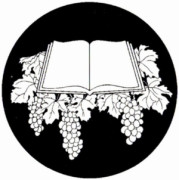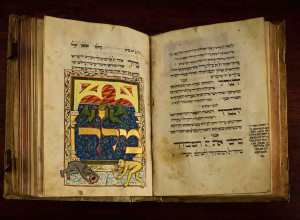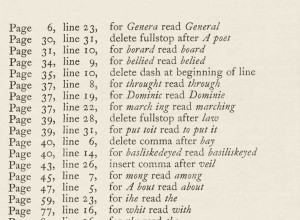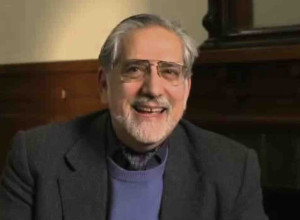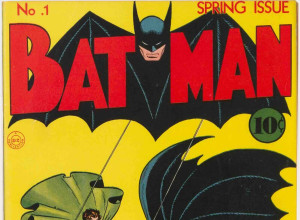A Stack of New Bibliofiction
Lost books, medieval manuscripts, and secret archives are favorite topics for novelists, and we bibliophiles can't seem to get enough of them. I've read three varieties of bibliofiction recently, all entertaining, and each quite different from the others.  First up: Lost Books. I heard about a new novel called The Infinite Future from an essay the author, Tim Wirkus, recently wrote titled "Our Obsession with Lost Books and How They Often Disappoint." In it, he gives a perfect summary of his novel: "Wondering what it would be like to track down and actually find a legendary manuscript, I started work on a story featuring a reclusive science fiction writer named Edward Salgado-MacKenzie, and three enthusiastic/ obsessive fans of his work who stumble upon his long-lost proposal for a never-published novel called The Infinite Future. The three devotees track rumors of the writer from São Paulo to Orange County to Eastern Idaho, recounting as they do tales from their own lives and summaries of their favorite Salgado-MacKenzie short stories." Now, sci-fi may not be your thing; it isn't mine, either. But the novel is stunningly inventive and great fun to read. Comparisons have been made to Ursula Le Guin and Roberto Bolaño, to which I would add Italo Calvino, particularly his If on a winter's night a traveler.
First up: Lost Books. I heard about a new novel called The Infinite Future from an essay the author, Tim Wirkus, recently wrote titled "Our Obsession with Lost Books and How They Often Disappoint." In it, he gives a perfect summary of his novel: "Wondering what it would be like to track down and actually find a legendary manuscript, I started work on a story featuring a reclusive science fiction writer named Edward Salgado-MacKenzie, and three enthusiastic/ obsessive fans of his work who stumble upon his long-lost proposal for a never-published novel called The Infinite Future. The three devotees track rumors of the writer from São Paulo to Orange County to Eastern Idaho, recounting as they do tales from their own lives and summaries of their favorite Salgado-MacKenzie short stories." Now, sci-fi may not be your thing; it isn't mine, either. But the novel is stunningly inventive and great fun to read. Comparisons have been made to Ursula Le Guin and Roberto Bolaño, to which I would add Italo Calvino, particularly his If on a winter's night a traveler.  Second: Medieval Manuscripts. The Scribe of Siena by Melodie Winawer was published last year, and a paperback edition was just released. It was on my 'TBR' pile for a few months before I got to it, and once I did, I could hardly put it down. It begins in present day New York City where thirty-something neurosurgeon Beatrice Trovato is called to Siena, Italy, to inherit her art historian brother's cottage. While there, she continues his research on the Tuscan town's medieval history. She finds fourteenth-century fresco painter Gabriele Accorsi particularly intriguing, especially when she notices a familiar face in one of his works. Before long, Beatrice finds herself transported to Siena in the year 1347, where she is vastly underdressed, but she has a good grasp of Italian and a talent for calligraphy, which lands her in a scriptorium after a kind nun takes her in. Of course, Beatrice will cross paths with Accorsi, and romance will ensue. But there are still mysteries to unearth--the Medici family plays a role--and the author does a tremendous job in plotting and weaving. The result is an enormously satisfying novel. I missed the characters as soon as I turned the final page.
Second: Medieval Manuscripts. The Scribe of Siena by Melodie Winawer was published last year, and a paperback edition was just released. It was on my 'TBR' pile for a few months before I got to it, and once I did, I could hardly put it down. It begins in present day New York City where thirty-something neurosurgeon Beatrice Trovato is called to Siena, Italy, to inherit her art historian brother's cottage. While there, she continues his research on the Tuscan town's medieval history. She finds fourteenth-century fresco painter Gabriele Accorsi particularly intriguing, especially when she notices a familiar face in one of his works. Before long, Beatrice finds herself transported to Siena in the year 1347, where she is vastly underdressed, but she has a good grasp of Italian and a talent for calligraphy, which lands her in a scriptorium after a kind nun takes her in. Of course, Beatrice will cross paths with Accorsi, and romance will ensue. But there are still mysteries to unearth--the Medici family plays a role--and the author does a tremendous job in plotting and weaving. The result is an enormously satisfying novel. I missed the characters as soon as I turned the final page.  Third: Secret Archives (plus a Lost Book). You could say The Bookworm by Mitch Silver is ripped from the headlines, or is it buried under a Cold War blanket? Largely set in Russia, the story is fueled by a worthy premise: Hitler positioned his army (and lost the war) based on poetic prophecies inscribed in his Bible. A set of long-forgotten audio tapes stored at the Russian State Military Archives and narrated by British actor Noel Coward pulls Russian scholar Lara Klimt, aka "the bookworm," into the fray. As she sets out to uncover Coward's plot, she discovers that current-day politicos are a little too intensely interested in her research. Turns out there's collusion! And a buffoon of an American president, too. Lara is a strong central character, but the rest of this political 'thriller' comes off as a bit boilerplate.
Third: Secret Archives (plus a Lost Book). You could say The Bookworm by Mitch Silver is ripped from the headlines, or is it buried under a Cold War blanket? Largely set in Russia, the story is fueled by a worthy premise: Hitler positioned his army (and lost the war) based on poetic prophecies inscribed in his Bible. A set of long-forgotten audio tapes stored at the Russian State Military Archives and narrated by British actor Noel Coward pulls Russian scholar Lara Klimt, aka "the bookworm," into the fray. As she sets out to uncover Coward's plot, she discovers that current-day politicos are a little too intensely interested in her research. Turns out there's collusion! And a buffoon of an American president, too. Lara is a strong central character, but the rest of this political 'thriller' comes off as a bit boilerplate.
Images via Penguin Random House; Simon & Schuster; and Pegasus Books





